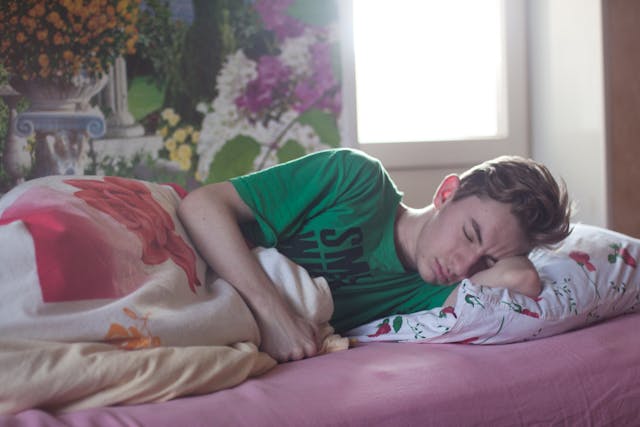Sleep is more than just a daily rest period — it’s a vital component of our overall health and well-being. While most people understand that a good night’s sleep helps them feel more alert and energized, many don’t realize how crucial it is for mental and cognitive health. Sleep plays a fundamental role in mood regulation, emotional resilience, memory processing, and overall brain function. Chronic sleep deprivation, on the other hand, can lead to serious mental health issues such as anxiety, depression, and cognitive decline.
How Sleep Affects Mental Health
Sleep and mental health are deeply interconnected. When sleep is disrupted, mental health often suffers, and vice versa. Here’s a closer look at how sleep influences mental well-being:
Mood Regulation
During sleep, the brain processes emotional information and regulates mood. Insufficient sleep can heighten emotional reactivity, making people more irritable, anxious, and prone to mood swings.
Stress Reduction
Sleep acts as a natural stress reliever. During the deep stages of sleep, the body reduces levels of cortisol (the stress hormone) and promotes physical and emotional recovery. Without proper sleep, cortisol levels remain elevated, making it difficult to manage daily stressors.

Emotional Resilience
Emotional resilience refers to one’s ability to bounce back from adversity. Sleep deprivation negatively impacts the brain’s prefrontal cortex, the region responsible for rational thinking and impulse control. This can make it harder to cope with everyday challenges, leading to heightened emotional responses.
Risk of Mental Health Disorders
Long-term sleep issues can increase the risk of mental health conditions such as anxiety, depression, and bipolar disorder. Sleep disturbances are not only a symptom of these conditions but can also be a contributing factor in their development. Addressing sleep problems is often a key part of treatment plans for these disorders.
Consequences of Deprivation on Mental and Cognitive Health
Chronic sleep deprivation can have far-reaching consequences on both mental and cognitive health. These effects include:
- Increased Risk of Depression and Anxiety: Lack of sleep increases negative thinking patterns, heightens emotional reactivity, and reduces emotional resilience.
- Impaired Memory and Learning: Sleep loss impairs the brain’s ability to consolidate new information, making it harder to learn and remember.
- Reduced Focus and Attention: Lack of sleep slows cognitive processing, reaction time, and problem-solving abilities.
- Increased Risk of Neurodegenerative Diseases: Sleep disruption affects brain detoxification, increasing the risk of Alzheimer’s and cognitive decline.

Tips for Improving Sleep Quality
If you’re struggling to get quality sleep, here are some evidence-based strategies to help you rest better and support your mental and cognitive health:
Stick to a Consistent Schedule
Go to bed and wake up at the same time every day, even on weekends. This regulates your body’s internal clock (circadian rhythm), promoting better sleep quality.
Create a Relaxing Bedtime Routine
Engage in calming activities before bed, such as reading, meditating, or taking a warm bath. Avoid stimulating activities like scrolling on your phone, as blue light from screens disrupts the production of melatonin, the sleep hormone.
Limit Caffeine and Alcohol
Caffeine is a stimulant that can interfere with sleep, especially if consumed in the afternoon or evening. Alcohol may help you fall asleep initially, but it disrupts the quality of deep sleep later in the night.
Optimize Your Environment
Keep your bedroom cool, dark, and quiet. Use blackout curtains, white noise machines, or sleep masks to create a sleep-friendly environment.
Limit Screen Time Before Bed
Blue light from phones, tablets, and laptops can suppress melatonin production, making it harder to fall asleep. Try to avoid screens for at least an hour before bedtime.
Practice Relaxation Techniques
Activities such as deep breathing, meditation, or progressive muscle relaxation can calm the nervous system, reduce stress, and make it easier to fall asleep.
Seek Professional Help If Needed
If sleep problems persist despite lifestyle changes, consider speaking to a healthcare professional. Sleep disorders like insomnia, sleep apnea, or restless leg syndrome may require specialized treatment.

To know more about other tips to improve anxiety visit here

